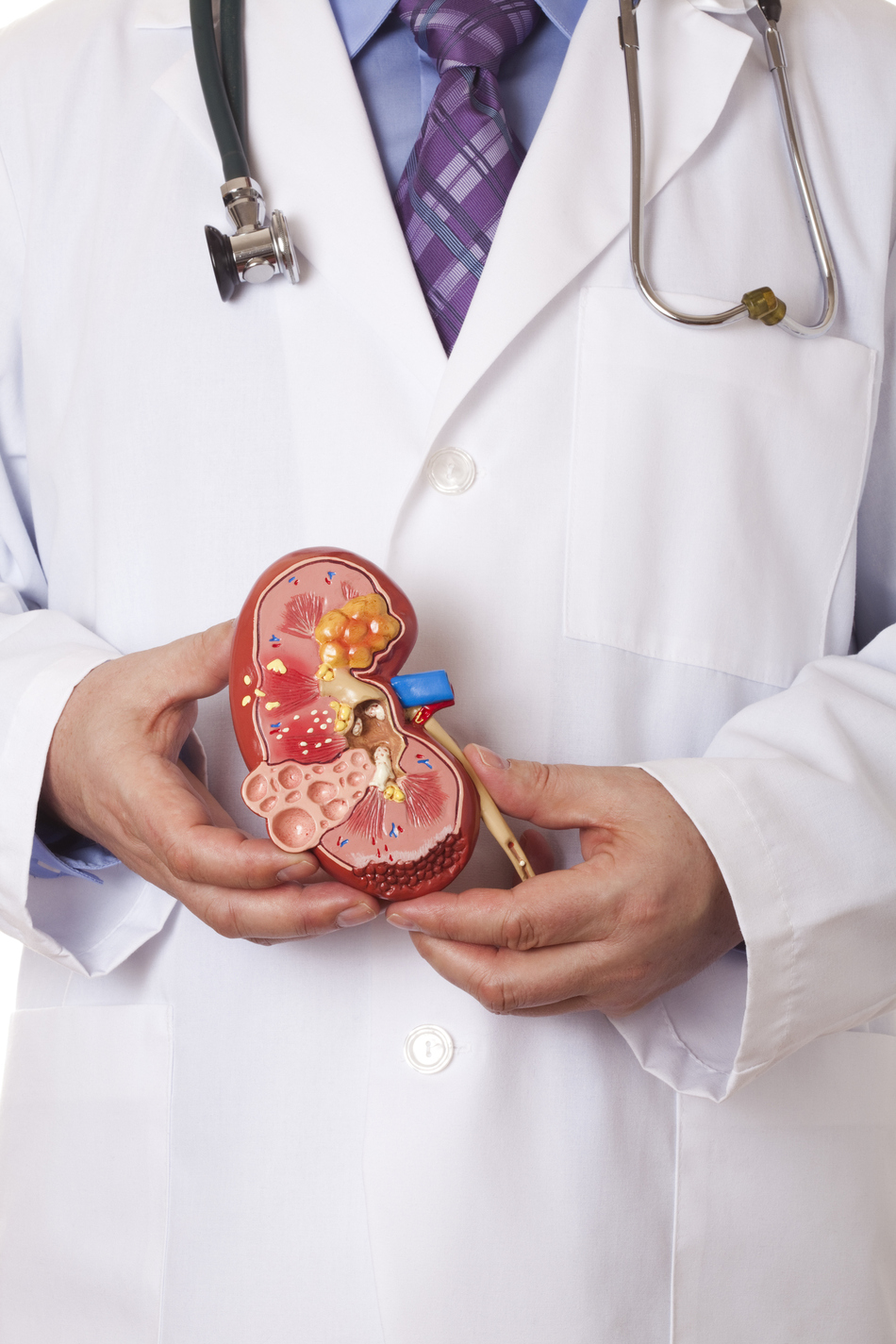Interviewer: You had kidney stones once in your life, what you need to know going forward. That's next on The Scope.
Announcer: Health tips, medical news, research and more for a happier, healthier life. From University of Utah Health Sciences, this is The Scope.
Interviewer: So you already went through the process once, the excruciating pain, then the re-passing of the stone or the operation to remove the kidney stone. Does that change how you need to look at your life from that point on? Well, we're going to find out right now. Doctor Gary Faerber is a urologist at University of Utah Health Care. If somebody has a kidney stone once, are they inclined to have another one?
What are My Chances of Getting Another Kidney Stone?
Dr. Faerber: Yes, they are. If you have a kidney stone and you make no changes in your lifestyle or anything else like that, you have a 50% chance of forming another stone within five years.
Interviewer: So I suppose the general advice would go, regardless of the stone, you need to drink more water, you need to watch your diet, the salts, the sugars, reduce that kind of stuff. Does that apply across the board?
Stay Hydrated & Eat Healthy to Prevent Kidney Stones
Dr. Faerber: That really applies across the board and of all of the things that you've mentioned there, keeping yourself well hydrated is the most important aspect of prevention of kidney stones. And I think in patients who have risk factors, for example, if they have a family history of stones, if this isn't their first stone and they've had several others, or if they have on their imaging studies more than one stone, those people really need to have an evaluation to figure out why they may be forming stones and what can we do to prevent them.
So in those patients, they'll get some blood test to look at their overall kidney function, we'll get serum calcium levels and if that's elevated we may get a parathyroid hormone level. And then above that, we'll also have them collect urine over a 24-hour period and look at the chemical composition of the 24-hour urine. And that will help us direct what medical therapies and dietary therapies would be appropriate for the folk.
Interviewer: So you might prescribe some sort of medication to help as well?
Dr. Faerber: Yes, absolutely.
The DASH Diet
Interviewer: Yeah. And would you prescribe a very restrictive diet more so than just eating healthy?
Dr. Faerber: I often will tell patients that a really good, healthy, what they call the DASH diet, which is used for patients who have cardiac disease, the DASH diet is a good diet to prevent kidney stones. It's made up of fruits and vegetables, low sodium, limitations of red meat, mainly poultry and fish, legumes and whole grains. Eating a diet like that, especially if you manage your calories and you're not eating too much compared to your activity levels, that's a great way to start limiting or restricting your incidence of forming stones in the future.
Prevention is Key
Interviewer: So you do the analysis, the tests, based on that result, you might prescribe a medication. Is there anything else that you would tell somebody that just had a kidney stone going forward?
Dr. Faerber: Well, if they have a family history, where their mom or dad or grandfather or grandmother or a brother and sister have a kidney stone, I often tell them, "Listen, you can't run away from your genes and you're sort of stuck with who you're with." And in that case, I will really push them to make sure that they keep their fluids up. I think the only other thing that is really important is to limit the amount of salt intake that you have, watch the potato chips and move that salt shaker away from the kitchen table.
Announcer: Thescoperadio.com is University of Utah Health Sciences Radio. If you like what you heard, be sure to get our latest content by following us on Facebook. Just click on the Facebook icon at thescoperadio.com.
How to Reduce Your Risk of Developing Another Kidney Stone
If you’ve had a kidney stone once, you are more likely to have another one in the future. In fact, without making lifestyle changes, there’s a 50 percent chance of forming a new stone within five years. Urologist Dr. Gary Faerber talks about lifestyle changes you can make to prevent another kidney stone from forming.


